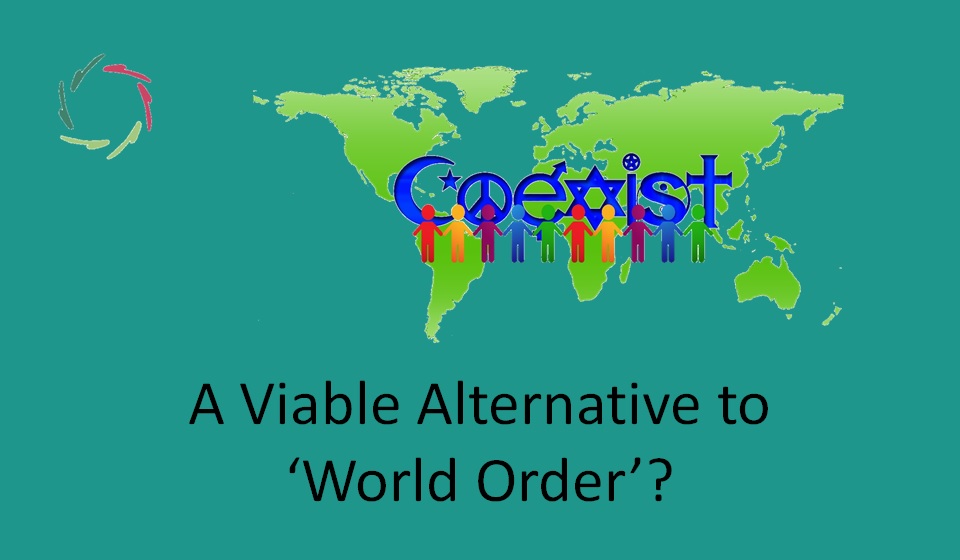From Identity Politics to Utopia

Identity politics = “based on or catering to the cultural, ethnic, gender, racial, religious, or social interests that characterize a group.”
Gay versus straight, black versus white, Palestinians versus Israelis, Catholics versus Protestants, Englishmen versus immigrants (see Brexit)… To many, the own group is ‘the box that I and others think I belong to’. I know who I am because I know my group(s). My identity is formed this way.
This may be very egotistic,
the group being an instrument for the own ego, to ‘get what’s in it for me’. As in many cases of egotism, the defense readily becomes a jail. The individual is not to grow outside the box.
Leading to aggression.
If my group is attacked, my identity is attacked and so I am attacked. The own group thus gets internal coherence from being ‘together strong’ in defense against the ‘enemy’. This enemy too is put into an identity box: I know who I am because I know my enemies.
When the enemy disappears, or when the own group grows in diversity, the group coherence is at risk for dissipation, sometimes very aggressively. An example of this: the schism In Christianity as instigated by Luther. The result: extreme violence between Protestants and Catholics.
In identity politics, ‘they’ are always the enemy.
In general, where people feel threatened, they tend to form identity groups. Identity politics serves to fight oppression, so it seems, but it can equally be used as a license for oppression or discrimination of yet others. Oppressing people because of certain characteristics (being black, poor…) ‘stereotypes’ in both ways, in a self-perpetuating pattern, eventually causing a deconstructed society. A me-society, me and my group, all ‘me’.
Politically, it serves to be at the head of such groups, or to pay attention to them in ways that are furthermore divisive. Eventually, almost all party politics is more or less ‘identity politics.’ Transcending this presupposes many people transcending their ego.
Utopia?
In Utopia (the ‘good place’) also, a group is a unit that people can identify with. Group cohesion is engendered in this through positive sentiments such as pride and camaraderie. The own group may foremost be seen as an instrument towards a cause that transcends the group itself: towards other groups and eventually towards a better world.
In Utopia, belonging to a group gives people positive energy. Instead of dividing the different groups, it unites them: “I identify with this group and this helps me to identify with the whole of humanity.” My identification with this group helps me to transcend my ego…
Humans are ‘tribal’ creatures. We should flow with this, find ourselves in our natural being.
To accomplish this, don’t we better choose for Utopia than for identity politics?


